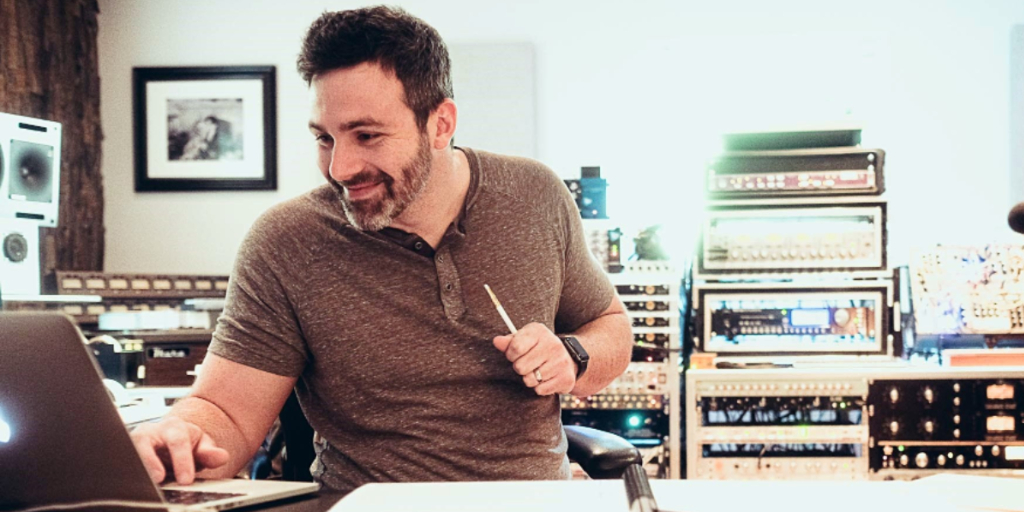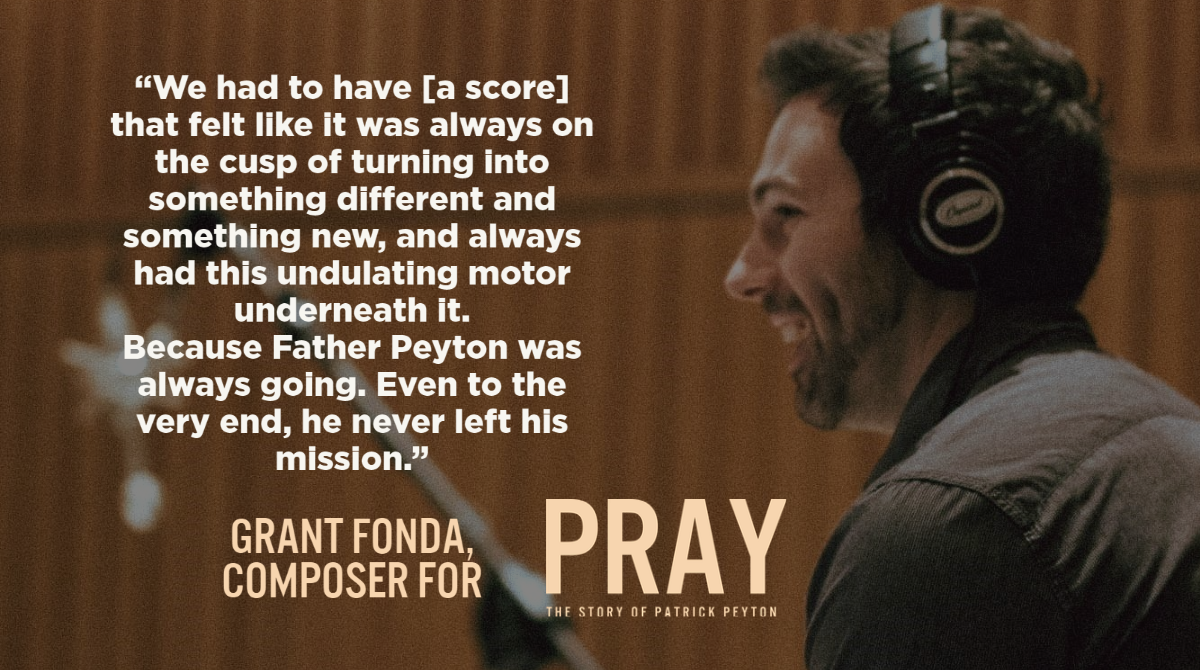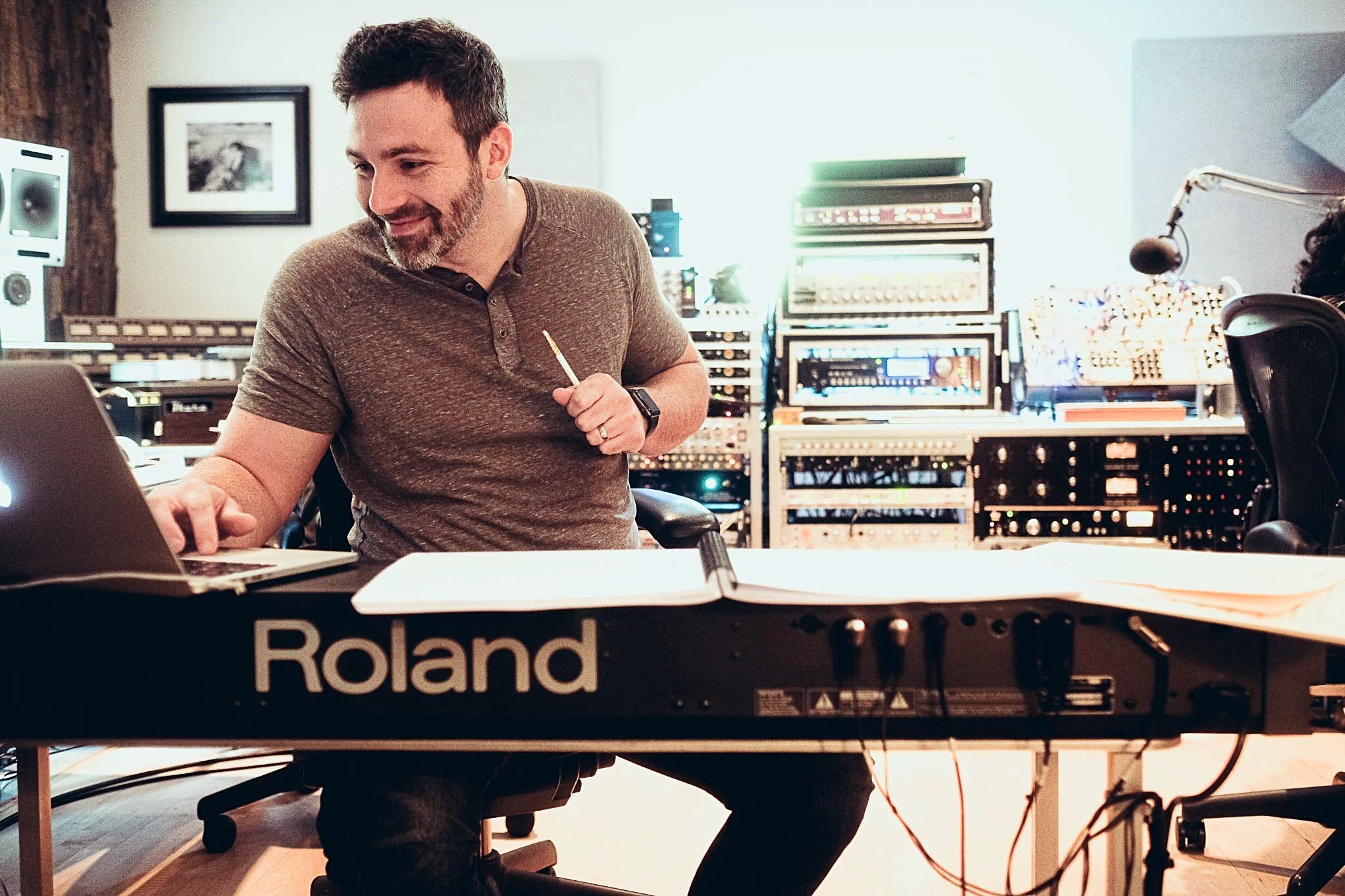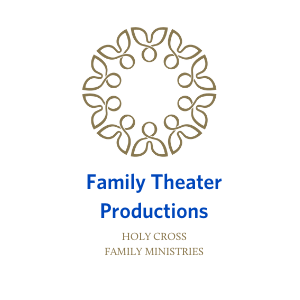
The composer of the musical score for PRAY: The Story of Patrick Peyton discusses his longtime love for Irish music.
Film composer Grant Fonda didn't just want his music for PRAY: THE STORY OF PATRICK PEYTON to complement the film; he wanted it to truly express the soul of the project and its subject, a humble yet powerful Irish priest and media evangelist.
And Fonda's not even Irish.
Fonda may have Italian heritage, but he feels as if he's got Irish music in his bones. Fonda's father introduced him to Scottish bagpipe music early on, but then his piano teacher brought him to the Irish uilleann (said "ILL-in") pipes.
"I grew up around that sound," he says. "Some of it is just having that born into me."
Then at college, Fonda (official site here) was commissioned to write Christmas music for the pipes, and he went deeper.
"I did a lot of research and listening," he says, "and looked at Irish folk music and original reels ... So, I came up with his concept of, what would have happened if Jesus had been born to the Irish first? What would that have sounded like?"
Fonda had also written an Irish lullaby for his child (click here to listen), and had worked on a live-orchestra version of James Horner's Irish-flavored score for James Cameron's Titanic.
So, when director Jon Cipiti and producer Megan Harrington came to him with Family Theater Productions' PRAY: THE STORY OF PATRICK PEYTON, a documentary biopic about the company's founder --a County Mayo-born Holy Cross priest who traveled to Hollywood and around the world to tell people about Jesus, Mary and the power of prayer -- Fonda felt right at home.
"When the time came to work on PRAY," Fonda says, "it really felt like coming home. But through the process of working on PRAY -- because there are sections that take place in Ireland, and there are sections that take place in Scranton, but still with Irish roots -- I went back and actually did a lot of study on Irish reels and jigs.
"I tried to be a musicologist in many senses, and ask, 'What makes this work?', and, 'How do we essentially create music for Father Peyton?' So, it was a lot of fun."
PRAY: THE STORY OF PATRICK PEYTON landed in theaters in October, and after a months-long run on the big screen, is currently available for digital rental or purchase on such platforms as Amazon, iTunes and Google Play (more info on that, and how to license the film for group screenings, at PrayTheFilm.com).
You can also buy a CD or MP3 version of Fonda's score at Amazon.com; or just get the digital version at iTunes/Apple Music.
Here's the trailer, with snippets of Fonda's score, which, like the film itself, is eligible for an Academy Awards nomination:
Cipiti and Harrington knew Fonda from having worked with him on a previous FTP film, the acclaimed documentary The Dating Project., about the modern struggles of people, from college age to 40, finding love in a culture that has lost the art of dating.
After PRAY, the same producing team came to him once more for the newest FTP documentary, The House That Rob Built, which is set for a digital release on Feb. 23 (pre-sales begin on Jan. 28). As a testament to Fonda's skill, it's not about a priest or dating -- it's about women's college basketball.
"The interesting thing about being a composer for media," says Fonda, is that we really, in many senses, have to be chameleons. We're craftsmen.
"In many instances, the filmmaker is the artist, and they're the ones who are really bringing a vision to life. But, as the composer, we're the craftsmen who build the cabinets of the house. That's part of why my voice will change, depending on the project."
Asked about being one man asked to do three very different films for one company, Fonda says, "One of the things we talk about with every film is how important the score is at shaping the heart of the story.
"It's always something that I take very seriously, because you recognize that the sound, the palette, is absolutely incorporated into the way the story's told.
"You want every one of them to be able to resonate on a very deep level."
In the middle of PRAY: THE STORY OF PATRICK PEYTON, as Father Peyton takes to the skies to visit cities around the world to promote his message that "the family that prays together stays together," the score switches from Fonda's music to Norman Greenbaum's 1969 rock hit Spirit in the Sky (click here to listen).
Did Fonda mind a pop song in the middle of his orchestral/Irish score?
"I've never thought of it as an interruption," says Fonda. "I see that it's another storytelling device. Score and songs have different places in a film. Songs are something that is a sense of familiarity and home for a viewer, but then also helps to give a lift to the score as well.
"Especially with somebody like Father Peyton, who's such an icon, it absolutely made sense to have a song in there. The other thing I actually always loved about using that song in PRAY, too, is because Father Peyton always engaged the popular media. That was a huge part of what made Family Theater."
In the end, Fonda very much wanted his music to express what impressed him most about the story of Father Patrick Peyton, C.S.C.-- a humble Irish priest who survived a near-fatal bout with tuberculosis through the power of prayer, then worked with Hollywood's biggest stars and traveled tirelessly in a mission to get the world to pray.
That led Fonda to compose music that was not just contemplative or beautiful but also bold.

"Father Peyton was known for being a man of humility," Fonda says, "and a man who was meek and mild-mannered in many ways -- but when necessary, he packed a punch, when he had to stand his ground and fight for things.
"Even the message of prayer is counter-cultural. It's something the world needs. It can't be handled delicately. We have to come out and say, 'This is something we desperately need.'
"So, finding that balance of, how do we carry and retain the humility and the sweetness with the forthrightness and the persistence? That was one of the things that was amazing about his life.
"I forget who said it, but somebody says it toward the end of the film said that, no matter what happened, even if he got knocked down, he always got back up.
"At the end of the day, his life was marked by this incessant persistence. That's actually one of the reasons why there's this synth that persists throughout, because Father Peyton was always on the cutting edge of whatever was coming next.
"So, I knew we couldn't have a score that was completely classical or traditional in its roots. We had to have something that felt like it was always on the cusp of turning into something different and something new, and always had this undulating motor underneath it.
"Because Father Peyton was always going. Even to the very end, he never left his mission."

Copyright 2020 Kate O'Hare
Image courtesy of Grant Fonda, all rights reserved, used with permission
About the author: Kate O’Hare, a longtime entertainment journalist, is Social Media Manager at Family Theater Productions.
About the Author

Family Theater Productions
Founded by Venerable Patrick Peyton in 1947, and based on Sunset Boulevard in Hollywood, California, Family Theater Production creates family-suitable and faith-friendly media for film, television and digital.


.png?width=1806&height=731&name=CatholicMom_hcfm_logo1_pos_871c_2728c%20(002).png)
Comments